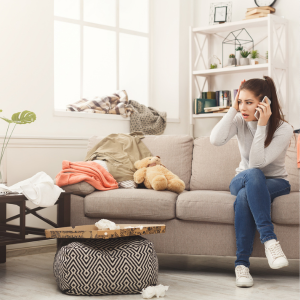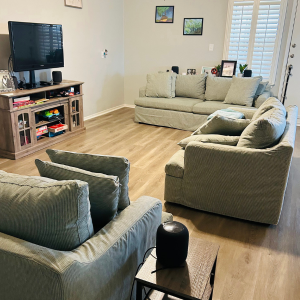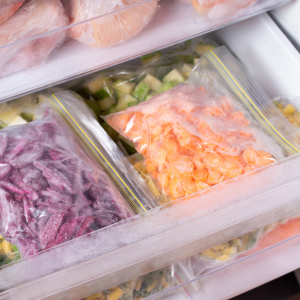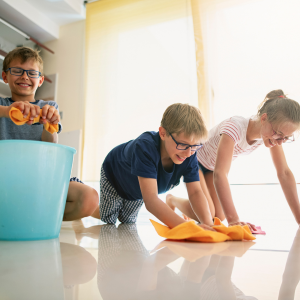Cleaning hardwood floors not only keeps your house clean but also enhances its beauty and prolongs the lifespan of your floors. Neglected floors are prone to dirt buildup, dull-looking surfaces, and damage. To avoid these issues, ensure that you clean and maintain your floors on a regular basis. Here is a comprehensive guide on how to clean hardwood floors.
1. Factors to Consider Before Cleaning Hardwood Floors.
Understanding the type of hardwood is crucial. It ensures you’re using the right cleaning products, which is key to the safety and longevity of your floors.
2. Finish
Check if your floors have a sealant or finish that may require special care to prevent damage.
Always conduct a spot test in an inconspicuous area. This simple step can prevent potential damage to your floor.
3. Cleaning Products to Use
Decide what cleaning products to use: a natural, pH-neutral, or commercial wood cleaner. Your choice of cleaner depends on your preference and the condition of your hardwood floors.
Mix warm water with a few drops of dish soap to create a natural, non-toxic wood cleaner.
Mix a gallon of warm water and half a cup of vinegar if you prefer to use vinegar for unsealed floors.
Note: The acidity of vinegar may dull or strip the sealant if used on a sealed wooden floor for an extended period. Be cautious when cleaning hardwood floors with vinegar.
Use Olive oil, jojoba oil, or commercial hardwood floor polish to polish and shine the surfaces.
You can also add your favorite essential oils to the cleaning solution to give it a pleasant scent while cleaning. The essential oil adds a pleasant aroma and has antibacterial properties, making it a great addition to your cleaning solution. It does not affect the floor.
What You Will Need to Clean Hardwood Floors
- Vacuum Cleaner, a dry mop, or a soft, brittle broom for sweeping
- Microfiber mop or cloth (you’ll need a couple of these, as you will need some wet and some dry )
- A bucket for mixing cleaning solution.
- Warm Water and your preferred cleaning agents.
How to clean hardwood Floors with a homemade natural cleaner or a pH-neutral cleaner
Step 1
Sweep or vacuum to remove any dirt and debris from the floors. Do not skip this step to prevent debris from scratching the floors while you mop.
Step 2
In a bucket, add a gallon of warm water, a few drops of dish soap, and a few drops of your favorite essential oil (optional). If using vinegar, add half a cup of vinegar to a gallon of warm water.
If using a commercial pH-neutral hardwood cleaner, such as Zep or OdoBan, follow the manufacturer’s instructions carefully.
Mop the floor in the direction of the wood grain, working in small sections at a time. This technique helps maintain the wood’s natural look and prevents streaking, as mopping against the grain can push dirt and water into the wood’s pores, potentially causing damage.

Step 3
Thoroughly dry the floors with a dry microfiber mop/towel to pick up any remaining moisture and prevent water damage to the floor.
Step 4 (Optional) Polishing
Use olive oil or a hardwood floor polish to give it a shine.
How Often Should You Clean Your Hardwood Floors?
The frequency with which you clean your hardwood floors typically depends on the amount of foot traffic in your house and usage. Neglecting regular cleaning can lead to a buildup of dirt and grime, which can damage the floor’s finish and make it more susceptible to scratches and other forms of wear and tear.
You can choose to clean your wooden floors Weekly, bi-weekly, monthly, spot clean, or deep clean them, depending on their level of dirtiness.
- Weekly Cleaning:
For high-traffic areas, such as hallways or living rooms where people frequently walk, weekly light cleaning is ideal. Vacuum, dust with a dry mop, or sweep the floor. Then, use a damp mop with an eco-friendly or pH-neutral cleaner designed for wooden floors to remove dust and dirt. - Bi-Weekly to Monthly:
For lower-traffic areas, such as bedrooms and guest rooms, cleaning every two weeks to once a month should be sufficient. Again, use a damp mop with a suitable cleaner to clean the floors. - Spot Cleaning:
Whenever you notice spills or spots, clean them immediately. This helps maintain the floor’s appearance and prevents damage. - Deep Cleaning:
Consider a deeper clean every 3 to 6 months for optimal results. Deep cleaning can involve a thorough mopping with an eco-friendly hardwood floor cleaning solution, followed by a dry mopping to pick up any remaining moisture.
Regular maintenance is not just a chore; it’s a responsibility that you owe to your beautiful hardwood floors. Daily sweeping or vacuuming is a proactive step that prevents debris from scratching the floor, preserving its beauty for years.
How to prevent water damage to your hardwood floors
Water can cause irreversible damage to your hardwood floors. You may not notice the damage immediately, but it will become apparent over time. Here are two main ways you can prevent the damage.
1. Avoid cleaning your floors using steam mops.
Steam mops are great and easy to use, providing effortless cleaning, but they can potentially cause irreversible harm to your wooden floors. They force moisture into the wood, which may lead to warping and damage to your floors.
2. Address spills immediately,
Clean any spills as soon as you notice them. Avoid spilling on your wooden floors or using wet mops to clean your floors..
3. Maintain indoor humidity
Maintaining consistent indoor humidity levels prevents the wood from expanding or contracting, thereby preserving its structural integrity.
4. Proper sealing
Ensure your hardwood floors have a quality, water-resistant finish.
5. Use door mats
Trap water spills using doormats before they reach your floors.
How to Remove Stains from Hardwood Floors
Use a damp microfiber cloth or sponge to gently blot out the stains.
For stubborn stains, mix baking soda with water to form a paste, apply it to the stain, and let it sit for a few minutes before wiping it clean. You can also use a plastic scraper to scrape off stubborn stains from surfaces.
Avoid using harsh chemicals or scrubbing the floors vigorously to prevent damage.
How to Avoid Streaks, Prevent Damage, and Keep Floors Clean
- Wipe up spills immediately after they occur to prevent stains from forming.
- Avoid excess water when mopping to prevent streaking.
- Use durable and safe furniture pads to protect the floor from developing scratches.
- Place mats at entryways to trap dirt and moisture.
Follow these professional cleaning tips and care instructions on how to clean hardwood floors effectively, prevent damage, and extend their longevity.





